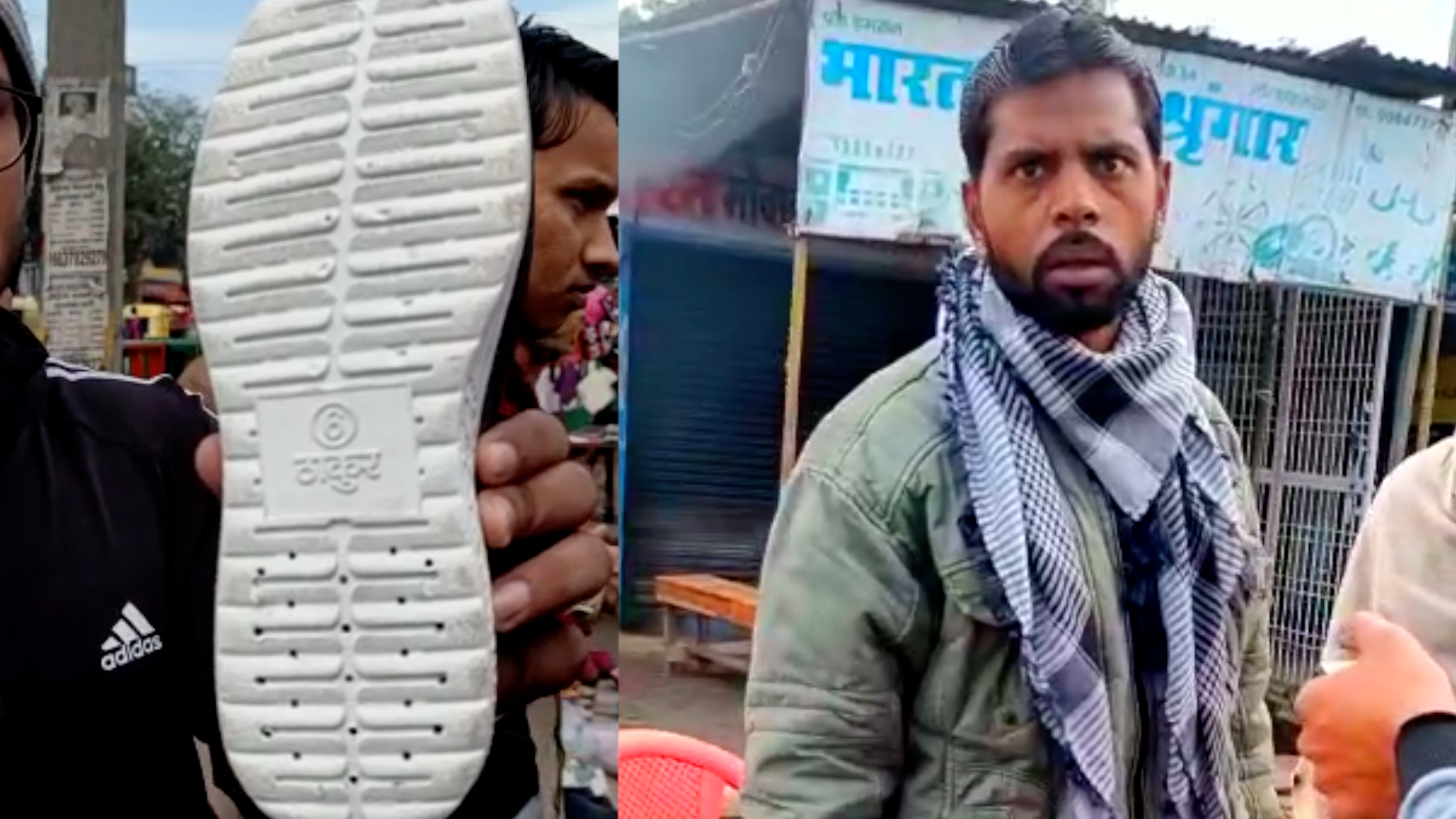Updated: Jan 18
Gulaothi, Bulandshahr (Uttar Pradesh): The police in this eastern Uttar Pradesh town released on 6 January a Muslim shoe vendor whom they wrongfully arrested—merely on a complaint from Hindu vigilantes—and incarcerated for two days with no evidence of crime of any wrongdoing.
Members of the militant right-wing Bajrang Dal on 4 January had accused Nasir (he uses only one name), 26, of hurting their sentiments by selling a shoe branded “Thakur”, a common upper-caste name.
After much ridicule and criticism on social media and elsewhere, the police dropped the charge of “promoting enmity between different groups on grounds of religion, race, place of birth, residence, language, etc., and doing acts prejudicial to maintenance of harmony” under section 153A of the Indian Penal Code, 1870, against Nasir.
Section 153A has been frequently and wrongly invoked by the UP police to implicate protestors and minorities, such as peace activist Faisal Khan, as Article 14 reported on 22 December 2020. We also reported on 2 October 2020 how UP Chief Minister Yogi Adityanath oversees a government that either discards or misuses the law to pursue declared biases of vigilante origin.
Two other charges against Nasir, sections 323 (“punishment for voluntarily causing hurt”) and 504 (“intentional insult to provoke breach of peace”) still stand, and the case has not been withdrawn. The investigation, the police said, will continue.
“My son has been arrested for selling shoes,” said Salim, father of Nasir and younger son Rehan, 10, who, too, was selling shoes. “We are just poor labourers. What is his crime?”
There is no evidence of a crime, except that Nasir was Muslim and the first information report (FIR) was filed by the Bajrang Dal.
“They should have stood up like men in uniform, and told them (the Dal) that no case is made out,” former director general (DG) of the UP police, Vikram Singh, told NDTV. “It’s as simple as that.”
No senior officers of the Bulandshahr police have spoken about the episode to the media.
See video:
No Evidence, No Justification for Arrest
What the police did was to arrest Nasir citing a potential law-and-order problem, even though he had committed no crime, as Singh said.
The police defended the arrest.
"Had the police not taken the action as per the legal system, many people would have reacted differently or in the wrong way (ulti ya bhinn pratikriya dete),” read a police tweet. “Hence, the police have followed the rules and please look at it in the same way."
The same justification was offered in Madhya Pradesh, where a Muslim standup comic has been in jail for seven days, after a similar complaint by Hindu vigilantes who disrupted his show, as Article 14 reported on 7 January.
Filed on 4 January, the UP FIR reads: "Complainant (Vishal Chouhan) stopped by Nasir's shoe shop to buy shoes. He saw 'Thakur' written on the sole of most of the shoes. When he confronted Nasir, he misbehaved and started fighting with him. Nasir also said he would continue to sell shoes with the caste name on them and used foul language against Hindus.”
A video of the incident revealed no attack by Nasir and no abuse against Hindus.
Nasir sold shoes of many brands, and one had the name Thakur embossed on its sole, apparently the brand name of a shoe company that had been selling shoes of that name for 40 years
After arresting Nasir on 5 January, the police took him to Ghaziabad, 62 km northeast, to verify that he had bought the shoes from a wholesaler there.
But as Singh, the former DG said, he should never have been arrested in the first place, especially since the section under which he was held can only be applied under clear circumstances.
No Criminal Intention
In Balwant Singh vs State of Punjab, 1985, the Supreme Court held that an offence under section 153A is not made out unless there is an existence of mens rea or criminal intention; 22 years later, the Supreme Court of India in the Manzar Syed Khan case, 2007, held that the intention to cause disorder or incite people to violence is the “sine qua non” of an offence under section 153A.
The prosecution has to prove prima facie the existence of mens rea on part of the accused. It was apparent in Nasir’s case, there was no criminal intention from the start, but the police went ahead and registered a case anyway based on the FIR filed by the Dal.
"We believe this to be a plot to insult a certain caste by selling shoes with Thakur name on its sole,” said Vishal Chouhan, the complainant and convenor of the Bajrang Dal in the Gulaothi area. Members of the Bajrang Dal had created a commotion when they found him selling “Thakur” shoes.
A video on social media showed a few men confronting an agitated Nasir, demanding to know why he was selling shoes that “insult the caste Thakur”. Nasir said he paid no attention to the labels of the shoes he sold and they should ask these questions of the manufacturer.
Nasir’s wife, Taufiqa, was inconsolable when reporters met her. She said they were a poor family and Nasir the only earning member.
Wasim, another shoe-vendor who sold shoes next to Nasir’s stall said Nasir was a daily wage labourer who also sold shoes to get by. If anyone had to be held responsible, it was the shoe company, said Wasim.
(Sanjeev Bhatnagar is an independent journalist based in Bulandshahr.)

